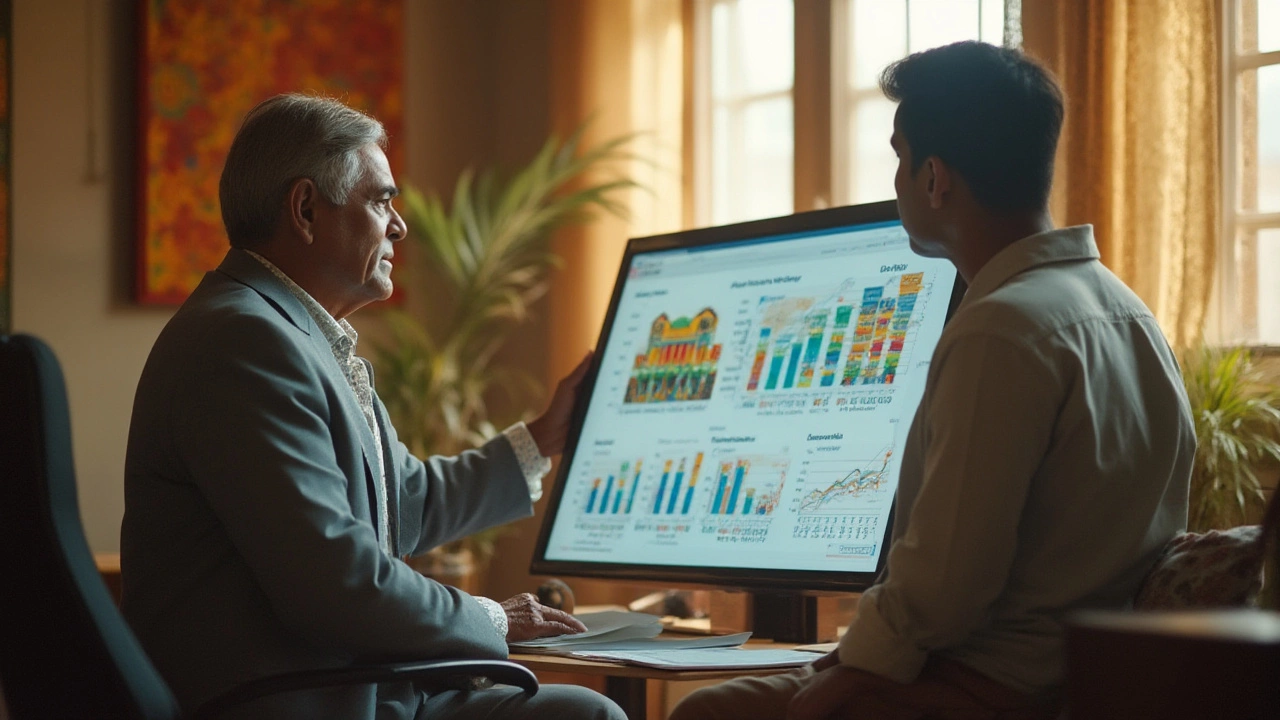Think owning an apartment complex sounds like a guaranteed payday? You wouldn’t be alone—lots of us daydream about passive income and less stress. But here’s the shocker: more than 60% of small property investments actually underperform or even lose money, according to a 2024 market trends report from CoStar. What’s the secret behind the buildings making it big? The answer often comes down to who’s running the show. This is where the letters “CPM” start popping up in serious conversations about real estate performance. Ever wondered what a Certified Property Manager really does, and why those three letters can mean more cash in your pocket, a better-class tenant, and above-average reviews even in a sluggish rental market?
The CPM Credential: Why Does it Even Matter?
CPM stands for "Certified Property Manager." It’s not just some vanity credential cooked up by overzealous real estate folks. This is an official title granted by the Institute of Real Estate Management (IREM)—an organization founded in 1933 that’s global today, with more than 20,000 members. You can’t buy this title on a whim or fill out a form and get a badge. Think about how pilots get licensed. There’s training, testing, and a commitment to best practices. The CPM credential has the same logic: it proves that someone can reliably manage income property, from strip malls to high-rise condos.
Why does it exist? Back in the day, property management had a pretty poor reputation—skeptic landlords, mismatched tenant expectations, and, frankly, a string of amateur disasters. IREM stepped in and shaped an industry standard that’s rigorous, recognized worldwide, and credible enough that some insurance companies adjust premiums down if you’ve got a CPM in charge. That’s how much faith the market puts in the difference.
More than 70% of multinational investors looking for property managers actively screen for the CPM in real estate when they hire, thanks to data that shows certified managers drive higher net operating income and tenant retention. IREM claims their CPMs manage over $1.2 trillion in assets globally. That’s not pocket change!
So, what exactly does a CPM actually prove? They know how to maximize cash flow, reduce wastage, ethically handle legal situations, and keep owners in the loop. Their code of ethics reads almost like a lawyer’s oath. If a CPM is involved, tough financial seasons don’t automatically spell disaster—these pros plan ahead. Plus, tenants on Yelp often leave better reviews when they interact with trained managers, because they get prompt communication and responsible upkeep.
In tough times, owners lean hard on their CPM’s financial skills—budgeting that actually pans out, navigating sudden cost increases, and maintaining curb appeal even on lean months. When my wife, Clara, and I looked at investing in a mixed-use downtown property in late 2023, every mentor we trusted said the same thing: "Find out who’s managing the place—if it’s a CPM, you can sleep easier."

What Does a CPM Actually Do on the Job?
If you picture a property manager as someone who just collects rent, think again. The CPM role has turned into a multi-tasking monster job, especially as technology, cost volatility, and sustainability concerns reshape the market. Let’s peel back the curtain and see what a CPM does from day to day.
For one, CPMs are financial strategists. They aren’t just taking care of repairs—they’re projecting market rent, watching utility usage, scoping out capital improvement opportunities, and playing defense against sudden curveballs like roof damage or surprise city tax increases. They know that a month lost to vacancy eats up gains like a hungry wolf.
Take tenant relations. Happy tenants mean regular income. CPMs are taught to be proactive: sending out surveys, tracking response times on maintenance, making sure accessibility features are current. They’ll draft lease terms that hold up in court. Legal compliance is a landmine—local building codes, federal fair housing regulations, green building mandates—CPMs are expected to keep up, so landlords don’t get hit with steep fines or lawsuits. One 2022 audit found that CPM-managed buildings had 80% fewer compliance errors compared to non-certified managers.
Here’s an example. When COVID hit, rent collection dropped by 27% across regular portfolios but less than 15% where a CPM was actively managing communication, relief plans, and maintenance. That’s the gap between scrambling to pay your mortgage or keeping steady with reserves.
Let’s not forget technology. CPMs are constantly learning new platforms—AI-powered leasing tools, energy cost analytics, and maintenance schedulers. They report directly to owners, not just to a faceless corporation. This matters hugely to small-scale investors who want actual accountability (with less drama along the way).
Before someone can even apply for the CPM credential, they need three years’ experience at minimum, with responsibility over a sizable portfolio—often $4 million or more. They slog through a series of exam modules covering marketing, asset management, ethics, and risk management. You won’t find many CPMs with outdated knowledge; they’re required to complete 40 hours of continuing education every three years.
Numbers time! Here’s how certified managers stack up against the field:
| Certified Property Managers (CPM) | Non-Certified Managers | |
|---|---|---|
| Annual Tenant Turnover | 19% | 28% |
| Avg. Occupancy Rate | 96% | 88% |
| Repair Response Time | 24 hrs | 55 hrs |
| Legal/Compliance Violations Per Year | 0.25 | 1.1 |
These aren’t small gaps. Tenant retention alone saves thousands each year in repainting, cleaning, and downtime.
If you’re a tenant, a CPM-run building usually translates to better communication and safer amenities. If you’re an owner, you lose less sleep over missing rent checks, insurance lapses, or last-minute city inspections. Then there’s the people skills part: good CPMs are mediators. Calls at 3 a.m.? Dead car battery in the parking lot? They handle the stuff nobody brags about, and they do it without drama.

Should You Hire a CPM? And How Can You Become One?
Do you really need a CPM on your team? If you’re handling more than a handful of units, or your building type is anything above "just a duplex," you’re seriously reducing your risk by hiring a CPM. Surveys of accidental landlords (folks who inherit a house and decide to rent it out) show that those armed with a CPM keep properties more profitable, avoid time-wasting headaches, and attract better tenants.
Here are questions to ask if you’re considering hiring a CPM:
- How many years of hands-on management do you have (at scale)?
- Are you up-to-date on local laws, green upgrades, and safety requirements?
- What’s your average occupancy rate versus market average?
- How fast do you resolve tenant issues—and can you prove it with stats?
- What’s your approach to major emergencies—think burst pipes at midnight or unexpected floods?
Most CPMs work in a management company, but more and more are now going independent, so you can interview a few and pick the one whose outlook fits your philosophy. Look for honesty, transparency (real reports, not just good stories), continued education, and a history of happy long-term owners.
If you’re on the other side—maybe you love real estate and think, “Hey, this could be my next career move!”—CPM can open doors, literally and figuratively. Here’s a bare-bones outline:
- Get a minimum three years’ verifiable management experience.
- Manage a property or portfolio worth at least $4 million (or 80+ residential units).
- Complete IREM’s core classes in marketing, asset management, leadership, ethics, and risk.
- Pass a battery of exams (close to 8 tough modules in recent years).
- Sign—and stick to—a strict code of ethics.
- Pay annual membership fees and keep learning via required continuing education.
If you have a real knack for numbers, enjoy working face-to-face with people, and have nerves of steel on busy days, CPM can be a lucrative, long-term profession. Some CPMs work for REITs, others land positions with private equity firms. Typical salaries range from $85,000 to $150,000, but it’s not unheard of to hit higher numbers in bustling markets like New York or Los Angeles, especially with bonus structures tied to property performance.
And if you just want your building to run smoothly? Don’t let the letters after someone’s name be the only deciding factor. Check references, ask uncomfortable questions, and be clear about the reporting you want. CPMs who are proud of their record will have data to back up any claim, from ROI increases to happy referrals. That’s how you sidestep horror stories—and end up celebrating your investment instead of dreading the next emergency call. In property management, those three little letters don’t just look good on a business card—they change how the game is played.

